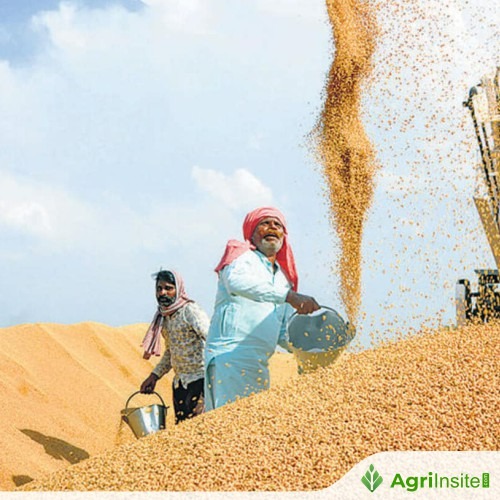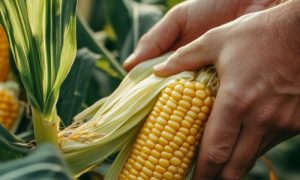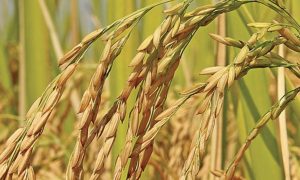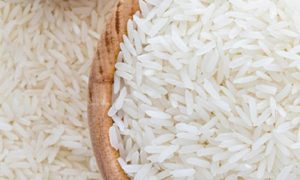Under IMF Pressure, Pakistan Ends Wheat Procurement and MSP System

Pakistan, under IMF pressure, halted wheat MSP and procurement in 2024–25, causing reduced cultivation and increased wheat imports. PASSCO, its grain agency, faces closure. Meanwhile, India maintains MSP and strong procurement, producing 117.5 million tonnes of wheat in 2024–25. Pakistan remains a major rice exporter but faces economic challenges impacting agricultural reforms and food security.
Pakistan, currently grappling with an economic crisis, is undergoing a phase of agricultural reforms. Under pressure from the International Monetary Fund (IMF), Pakistan did not announce the Minimum Support Price (MSP) for wheat for the ongoing marketing season 2024–25, nor did it undertake any government wheat procurement. The Pakistan Agricultural Storage and Services Corporation Limited (PASSCO) has not procured any wheat this year, and the Pakistani government is planning to shut down this organization, which functions similarly to India’s Food Corporation of India (FCI). Under the Extended Fund Facility loan agreement, Pakistan will receive $7.11 billion from the IMF between 2024–25 and 2027–28. The decisions related to the agriculture sector are being made as part of this agreement.
Due to the non-announcement of wheat MSP for this year, the wheat cultivation area in Pakistan has declined by approximately 500,000 hectares. According to the U.S. Department of Agriculture (USDA), wheat cultivation in Pakistan this year has reduced to 9.1 million hectares, and as a result, wheat production in 2024–25 is estimated to drop from 31.44 million tonnes to 28.5 million tonnes. USDA estimates wheat consumption in Pakistan for 2024–25 will be around 31.5 million tonnes. Consequently, Pakistan will need to import wheat. In fact, it had imported wheat last year as well. The per capita wheat consumption in Pakistan is 124 kilograms annually.
Last year (2023–24), Pakistan had set the wheat MSP at 9,750 Pakistani rupees per quintal, which is approximately 3,000 Indian rupees per quintal. PASSCO had procured 1.79 million tonnes of wheat. However, for the marketing season that began in April 2025, no procurement has been done.
Furthermore, the system of determining and regulating the prices of agricultural products at both the federal and provincial levels in Pakistan is being dismantled. This change has been implemented from the Rabi season of 2025 and is expected to be completed by the fiscal year 2026. Pakistan’s Minister for Parliamentary Affairs, Tariq Fazal Chaudhry, informed the National Assembly that PASSCO will be shut down, and government procurement of wheat and the MSP system will be discontinued. Additionally, a consultancy firm named TAGM & Company has been appointed to evaluate the warehouses and offices of PASSCO, and it is expected to submit its report within three months. Established in 1973, PASSCO is a 51-year-old institution.
Pakistan has also assured the IMF that it will review all laws and regulations related to market intervention in the agricultural sector by December 2025. This includes the Price Control and Prevention of Profiteering and Hoarding Act, 1977, along with similar laws in the provinces of Punjab, Balochistan, Sindh, and Khyber Pakhtunkhwa. Furthermore, laws in these provinces that exempt agricultural income from taxes will be amended at the federal level to align with individual income tax and corporate income tax structures. This effectively means agricultural income will be brought under the tax net starting January 2025.
Pakistan’s deteriorating economy has led to a situation where the country has had to comply with IMF conditions affecting decisions in the agricultural sector. These decisions reflect the dominance of the military establishment over Pakistan’s priorities. The impact of these reforms will only become clear over the coming years. However, it will be interesting to observe what outcomes arise from this market-driven approach in the agriculture sector.
The situation in India
In India too, some economists have advocated for leaving agricultural production and marketing to market forces. It’s not that India has never taken loans from the IMF. In 1991, during a balance of payments crisis, India borrowed from the IMF, which led to the implementation of economic reforms. However, India did not accept any conditions related to agriculture or food security.
This year, India is estimated to produce 117.5 million tonnes of wheat, and the government has set the MSP at ₹2,425 per quintal for the Rabi Marketing Season 2025–26. Wheat procurement is expected to reach 30 million tonnes. The government has extended the wheat procurement deadline to June 30 in some states. Hence, India’s production and policy scenario cannot be compared with Pakistan. In terms of wheat and other crops, India significantly outperforms Pakistan in both production and consumption. Comparisons, if any, can only be made between Pakistan and some Indian states.
While India is not under IMF pressure, the central government did introduce three farm laws in June 2020 related to agricultural reforms. However, due to massive protests by farmer organizations lasting around 13 months, the government repealed these laws in 2021. Since then, no major decisions have been taken regarding agricultural reforms in India.
Meanwhile, economically distressed Pakistan is compelled to follow all of the IMF’s conditions. As a result, wheat imports—which were already necessary—are expected to rise. According to the USDA, Pakistan imported 3.59 million tonnes of wheat in 2023–24, and with domestic production expected to decline and consumption projected at 31.5 million tonnes, imports will likely increase further.
However, in the case of rice, Pakistan is in a better position. It is the fourth-largest rice exporter in the world after India, Vietnam, and Thailand. Pakistan produces about 9.8 million tonnes of rice and consumes around 4.2 million tonnes. In 2024–25, Pakistan exported 5.5 million tonnes of rice, compared to 6.49 million tonnes the previous year. In the basmati rice export market, Pakistan remains a key competitor to India.
To Read more about Wheat News continue reading Agriinsite.com
Source : Rural Voice
















